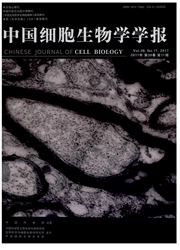

 中文摘要:
中文摘要:
P-选择素是选择素家族的重要黏附分子,作为血小板/内皮细胞活化标志和细胞黏附受体,其可通过介导血小板、内皮细胞黏附及与白细胞的相互作用,启动参与了包括炎症和血栓形成等多种病理生理起始过程,是炎症/血栓的重要介质和靶分子。抑制P-选择素及其与配体的结合和作用,可使病理状态下血栓局部白细胞聚集减少、细胞因子及组织因子表达降低、纤维蛋白生成减少,从而有助于抑制血栓的形成。因此,随着P-选择素及其细胞黏附与血栓形成研究的不断深入和阐明,以P-选择素为靶标的血栓性疾病的诊断和抗黏附治疗,也已引起人们关注并具有良好的临床应用价值和前景。
 英文摘要:
英文摘要:
P-selectin is critical cell molecule of selectin family, which plays a significant role in inflammatory response, blood coagulation and thrombosis by regulating the initial interactions between leukocytes and the blood vessel wall as well as between activated platelets and leukocytes. Multiple studies have shown that these adhesion molecules are not only required for the normal recruitment of leukocytes during an inflammatory reaction but also are important in recruitment of leukocytes and leukocyte microparticles to thrombi and for normal tissue factor accumulation and fibrin generation in thrombi. The inhibition of interaction of P-selectin with the ligand could down regulate cytokine and tissue factor expression and repress recruitment of leukocytes. All of these lead to new targets for antithrombotic therapy.
 同期刊论文项目
同期刊论文项目
 同项目期刊论文
同项目期刊论文
 期刊信息
期刊信息
